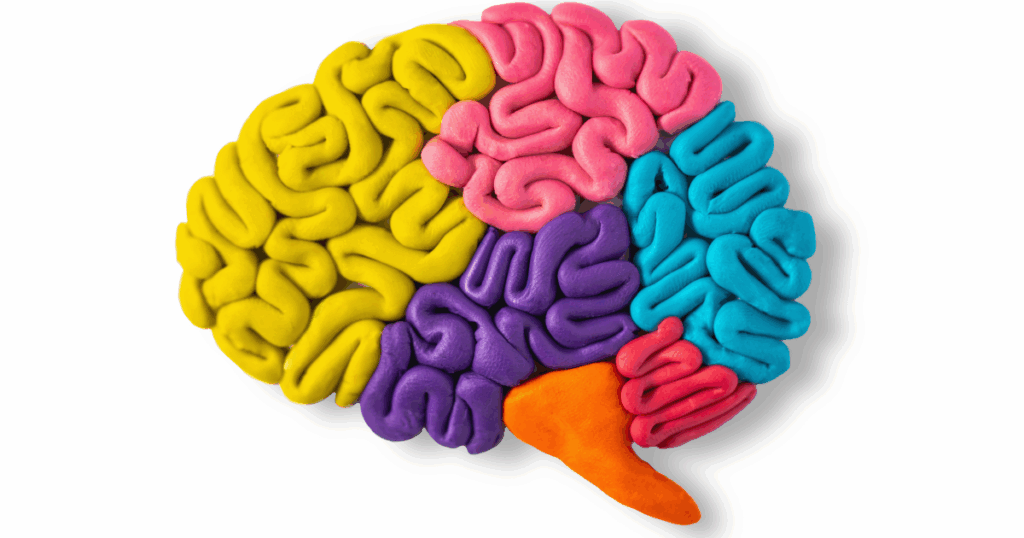I’ve seen firsthand how women in their 40s and beyond start noticing subtle (or not-so-subtle) changes in memory, focus, and mental clarity. Maybe you’ve walked into a room and forgotten why you were there—or struggled to recall a word that used to come naturally. Sound familiar?
Let me reassure you: you’re not alone, and you’re not “losing it.”
These changes are common and often tied to hormonal shifts, increased stress, poor sleep, and yes—your nutrition. The good news? What you eat can play a powerful role in protecting and even enhancing your brain health.
Let’s talk about brain food—not trendy supplements or expensive powders—but real, everyday foods you can start enjoying now to nourish your mind, support cognitive function, and help keep your memory sharp for years to come.
🫐 1. Blueberries: Nature’s Brain Booster
Blueberries are what I like to call a “super snack.” These tiny berries are packed with antioxidants, particularly anthocyanins, which have been shown to support communication between brain cells, reduce inflammation, and improve memory.
How to enjoy them:
- Toss a handful into your morning yogurt or oatmeal
- Blend them into a smoothie with spinach and almond milk
- Keep a container of frozen blueberries for easy access anytime
Blueberries are a smart (and delicious) way to support mental clarity and protect your brain as it ages.
🌿 2. Turmeric: The Golden Spice for Brain Support
Turmeric contains a compound called curcumin, which has powerful anti-inflammatory and antioxidant benefits. It can cross the blood-brain barrier and has been linked to improved mood, memory, and even reduced risk of neurodegenerative conditions like Alzheimer’s.
Tips from my kitchen:
- Add a teaspoon to soups, stews, or roasted vegetables
- Make “golden milk” with almond milk, turmeric, cinnamon, and a touch of honey
- Take with a pinch of black pepper to enhance absorption
As we age, chronic inflammation can accelerate cognitive decline. Adding turmeric to your meals is a gentle way to counteract that process.
🥦 3. Broccoli: A Green Giant for Cognitive Protection
Broccoli is one of the most nutrient-dense vegetables out there. It’s high in antioxidants and vitamin K, which is essential for forming sphingolipids—a type of fat that’s densely packed into brain cells. It also contains compounds that protect the brain from oxidative stress.
Not a fan of plain broccoli? Try this:
- Add chopped broccoli to pasta sauces or stir-fry
- Roast it with olive oil, garlic, and lemon for a crispy finish
- Blend it into an egg bake or frittata
A few servings a week can go a long way in supporting your mental sharpness.
🎃 4. Pumpkin Seeds: Small But Mighty
Pumpkin seeds are little powerhouses full of magnesium, iron, zinc, and copper—all essential for brain health. Zinc helps nerve signaling, magnesium supports learning and memory, and iron delivers oxygen to your brain. Just a handful a day can help nourish your mind.
Snack smart:
- Sprinkle them over salads or yogurt
- Add them to homemade granola or trail mix
- Enjoy them roasted with sea salt or cinnamon
Bonus: they’re also a great source of plant-based protein and fiber.
🍫 5. Dark Chocolate: Yes, You Can Have Chocolate!
Dark chocolate (70% cacao or higher) contains flavonoids, caffeine, and antioxidants—all of which are known to enhance memory, improve blood flow to the brain, and boost mood.
As a nurse practitioner, I always say: you don’t need to give up chocolate—just choose the kind that gives your body and brain a little love back.
Enjoy mindfully:
- A small square after lunch
- Melt it over fresh strawberries
- Blend cacao powder into your morning smoothie
Remember, a little goes a long way!
🍊 6. Oranges: A Vitamin C Powerhouse
One medium orange provides all the vitamin C you need in a day. And why is that important? Because vitamin C helps prevent mental decline and protects against age-related cognitive diseases like Alzheimer’s. It’s also key for reducing oxidative stress and inflammation.
Citrus options:
- Enjoy oranges, grapefruits, lemons, or mandarins
- Add slices to your water for a refreshing twist
- Use fresh lemon juice in dressings, marinades, or herbal teas
And don’t overlook kiwi, strawberries, and bell peppers—all great sources of vitamin C too!
🥚 7. Eggs: Brain Fuel in a Shell
Eggs are a fantastic source of choline, a nutrient that helps create acetylcholine—a neurotransmitter that regulates mood and memory. They’re also rich in B6, B12, and folate, which are essential for brain function and preventing cognitive decline.
Easy ways to add them in:
- Scrambled with spinach and mushrooms
- Boiled and added to salads or grain bowls
- Baked into a frittata or egg muffins for the week
Eggs are one of my top recommendations for women who want sustained energy and better focus throughout the day.
🍵 8. Green Tea: Sip Your Way to Sharper Thinking
Green tea isn’t just a soothing beverage—it’s also a brain-boosting powerhouse. It contains L-theanine, an amino acid that promotes relaxation without drowsiness, and a moderate dose of caffeine for alertness.
Studies show green tea can improve memory, attention, and even reduce symptoms of anxiety.
Make it a ritual:
- Brew a cup mid-morning to avoid the afternoon crash
- Try matcha for a stronger dose of antioxidants
- Add mint, lemon, or ginger for flavor and added benefits
If you’re sensitive to caffeine, choose decaffeinated green tea or limit your intake to earlier in the day.
🐟 9. Fatty Fish: Omega-3s for Mental Clarity
This one is a must. Fatty fish—like salmon, mackerel, sardines, and trout—are rich in omega-3 fatty acids, which make up a large part of your brain’s structure. Omega-3s are essential for sharpening memory, improving focus, and reducing inflammation.
Low levels of omega-3s have been linked to faster mental decline and even depression.
Try adding fish to your meals:
- Grill salmon and serve with roasted veggies
- Make a tuna salad with Greek yogurt, celery, and dill
- Add sardines or anchovies to salads and grain bowls
If you don’t eat fish, consider an omega-3 supplement made from algae (plant-based alternative).
🧠 A Final Note from Your Nurse Practitioner
Your brain is not just an organ—it’s the command center for your thoughts, emotions, and experiences. Nourishing it isn’t just about aging well; it’s about living well.
So many women over 40 come into my office worrying about brain fog, forgetfulness, or just not feeling as sharp as they used to. And while we always look at the big picture—sleep, hormones, stress, lifestyle—nutrition is one of the most powerful and accessible tools we have.
Start small. Add one or two of these foods into your week. Choose whole, unprocessed options as often as you can. And most importantly, be kind to yourself in the process.
Your brain has carried you through a lot. It deserves a little love in return.

